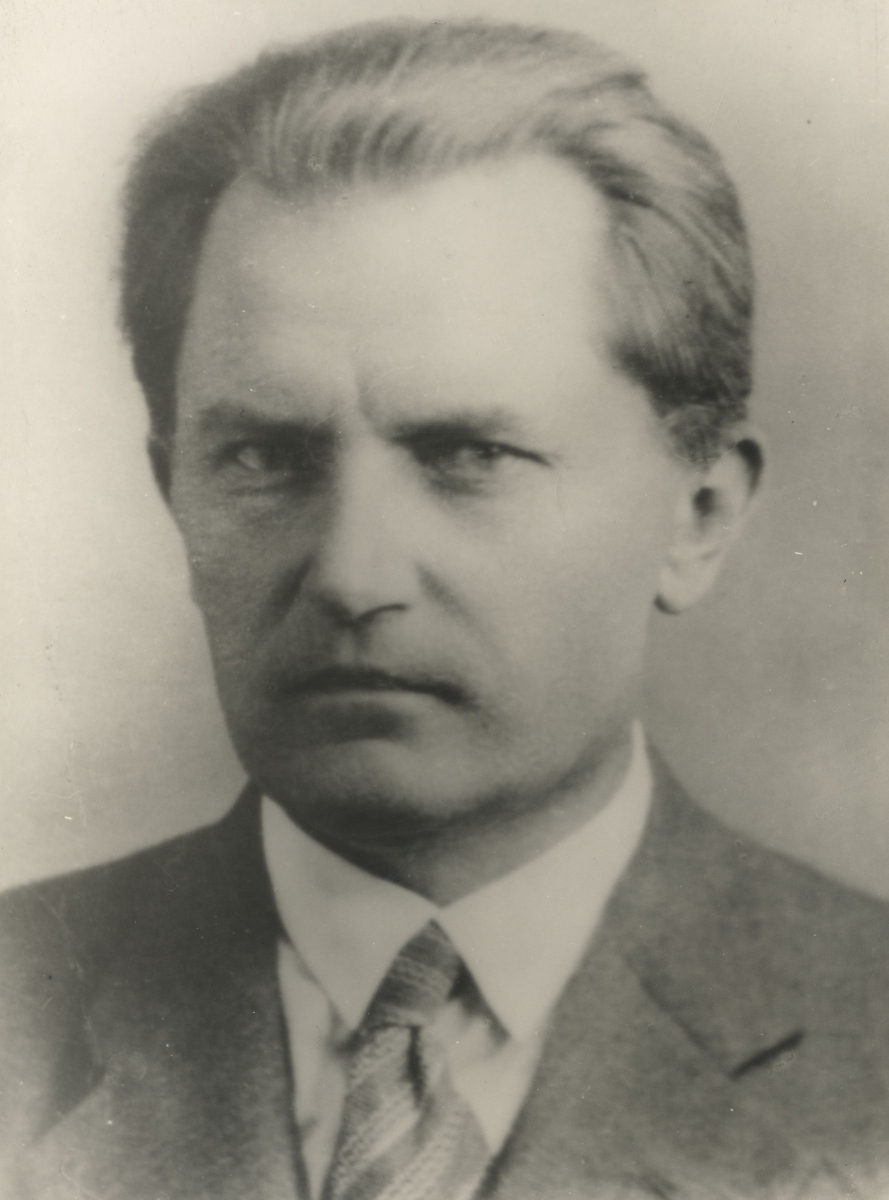
Eessaare Aadu
Eessaare Aadu was the pseudonym of Jaan Anvelt (18. IV 1884 – 11. XII 1937), a publicist, prose writer, and one of the leading Soviet revolutionaries in Estonia.
He was born a peasant in Oorgu, Viljandimaa, and studied to become a school teacher at the University of Tartu (known then as Dorpat). He taught in Toila from 1905 to 1907 but became simultaneously involved with revolutionary activity. He then passed his matriculation exam to study law part-time at St. Petersburg University from 1907–1912. It was there that he joined the Bolsheviks via the Russian Social Democratic Labor Party. He was arrested in 1911 for political reasons and expelled from the university, then sent to Estonia. He finished his degree as an extern and worked in Narva from 1912–1917 as a law assistant. In 1912, together with Johannes Käsper and Villem Bukk, he founded the labourer’s journal Kiir and edited it from 1912–1914. In 1917, he moved to Tallinn and became one of the primary leaders of the Bolsheviks in Estonia.
In 1917, Anvelt led Bolshevik revolutionaries to Tallinn and took political power during the October Revolution. During those tumultous times Anvelt held several leadership positions in Estonia: he was a member of the Estonian Provincial Assembly, head of the Estonian Soviet Executive Committee and the chairman of the Council of the Commune of the Working People of Estonia. Ultimately the communists were defeated in the Baltics, and Anvelt was forced to go underground until his emergence in the 1924 Estonian failed coup d’etat co-organised by the Russian Communist Party and the Communist International (Comintern), a group that advocated world communism. Anvelt was one of the main organisers of the coup, during which he killed a patrolman of the Baltic Railway Station in Tallinn. In 1925, Anvelt went to the U.S.S.R and worked from 1926–1929 as a political commissar of an airforce academy in Moscow. From 1929–1935, he worked in top administrative positions of the civilian air fleets, and from 1935–1937, he served as an executive member within Comintern.
In 1937, Eessaare was arrested, then interrogated and beaten by Aleksandr Langfang during Stalin’s Great Purge. He died from the injuries sustained during the interrogation and was declared an enemy of the people afterwards. In 1957, he was posthumously rehabilitated.
Anvelt had many additional pseudonyms besides Eessaare Aadu, including Jaan Holm, Jaan Hulm, Kaarel Maatamees, and Onkel Kaak. He primarily wrote socio-political articles in periodicals. He began writing in the Tartu Teachers’ Seminary and published in the illegal student journal Ärataja. In 1904, he published his first stories in the magazine Linda under the name Jaan Hulm. With the collection of short stories Räästaalused (‘Life under Eaves’, 1916) he began using the name Eessaare Aadu, which became his primary pseudonym from then on. His work focuses on the internal world of the working person—the struggle of class and the topic of Communism. These topics are seen in Räästaalused and the short stories Metsa serval (‘The Edge of the Forest’, 1919) and Kurjategija (‘Criminal’, 1922). His half-finished novel Linnupriid (‘The Outlaws’, 1922–1923) is considered to be his masterpiece. His work brought a new subject to Estonian literature: the battle in the name of the Communist Party and its statutes.
M. M.
Books in Estonian
Novels
Linnupriid. Tallinn: Eesti Raamat, 1984, 175 lk.
Short stories
Räästaalused. Tallinn: Mõte, 1916, 167 lk.
Alasti. Tallinn: Mõte, 1917, 114 lk. [2. trükk: Peterburi: Eesti töörahva kommuuna kultuura ja ariduse valitsus, 1919, 113 lk.]
Valitud jutustusi. Tallinn: Eesti Raamat, 1971, 376 lk.
Metsa serval. Tallinn: Eesti Raamat, 1984, 211 lk.
Selected works
Walitud teosed. I. Leningrad; Moskva: Välismaatööliste Kirjastusühisus NSV Liidus, 1934, 169 lk. [Sisu: ’Viimne pauk’, ’Kalal’, ’Üle mädasoo’, ’Alasti’.]
Walitud teosed. II. Leningrad; Moskva: Välismaatööliste Kirjastusühisus NSV Liidus, 1935, 308 lk. [Sisu: ’Metsa serval’, ’Teel’, ’Välgu valgel’, ’Kuritegija’, ’Linnupriid’.]



